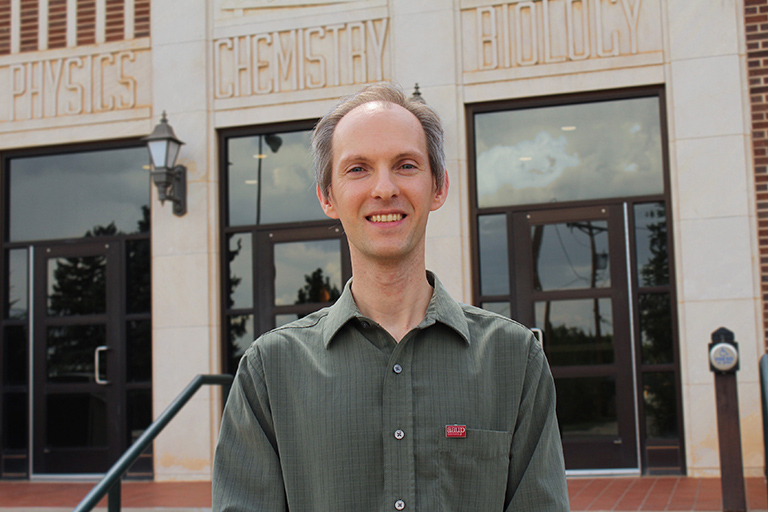Dr. Steven Karpowicz, a new assistant professor of biochemistry at Eastern New Mexico University, loves to teach and hopes to equip his students for academic and professional success.
"I want to positively affect students and help them become knowledgeable individuals who can achieve their career goals," he said.
Dr. Karpowicz was drawn to working at Eastern because he "liked the opportunity to engage with students in reasonably small classes and to mentor undergraduate and graduate students. The facilities in the Science Building are also nice and modern."
He teaches courses focused on chemistry and biochemistry.
"I hope that students interested in biochemistry or molecular biology join my research lab. Together, we can investigate the human health-relevant metabolic pathways for taurine, and maybe discover some new genes and biological molecules in the process," he explained.
His favorite part of teaching is "when a student learns to critically think about science, and then becomes aware that he or she has gained this important skill. I believe that students who are capable of employing critical and independent thought are well-equipped to become good professionals and citizens."
Dr. Karpowicz listed his goals for his new position at Eastern:
"First, I want to positively affect students and help them become knowledgeable individuals who can achieve their career goals. Second, I want to contribute to the field of biochemistry through my research. Third, I want to enjoy the work that I do, so that I can continue to impart my enthusiasm for science to others."
The assistant professor of biochemistry earned a Bachelor of Science in Applied Science in Chemical Engineering, with a second major in Chemistry with a concentration in Biochemistry at Washington University in St. Louis in 2005.
"I was three classes short of a third major in biology, but I wanted to spend time doing more undergraduate research rather than taking more classes," explained Dr. Karpowicz, who received a Doctor of Philosophy in Biochemistry and Molecular Biology at the University of California, Los Angeles in 2011.
He has "always wanted to be a scientist. I found an interest in both chemistry and biology during high school, but I became particularly interested in the chemistry of biological systems during college."
After receiving his bachelor's degree, Dr. Karpowicz found a passion for teaching.
"When I was nearing graduation from UCLA, I was not sure what I wanted to do for my career. I already had completed numerous semesters teaching students, and I was told by both professors and students that I was a good teacher. Thus, I decided to try an academic teaching job.
"I was fortunate to receive a one-year visiting professor position teaching Biochemistry at Eastern Oregon University. I then found a more permanent position as a biology professor teaching Genetics and Cell Biology at the University of Central Oklahoma.
"After some time, I wanted to apply my research. I left the university and became a science entrepreneur, starting my own company. I developed a diagnostic test but was told by investors that more basic science was needed for successful commercialization. Also, I found that I missed teaching students. Thus, I am glad to return to academia and join the community at ENMU."
Dr. Karpowicz was given the Distinguished Teaching Award from the University of Central Oklahoma chapter of the American Association of University Professors.
He received membership in Pi Alpha Alpha, an honor society for Public Affairs and Administration, for his efforts to educate political science students about how data from the natural sciences can inform the making of good public policy.
When asked what influences him, Dr. Karpowicz discussed ancient Hellenistic philosophies:
"[They] inform the ways that I think and teach. For example, on the first day of class, I quote to students the Neopythagorian aphorism 'The ignorance of what is excellent is the cause of error.'
"Similarly, the Cynic philosophers spoke against false belief, which can be understood to mean assumptions and presuppositions. Particularly in science, I try to teach students to critically question underlying assumptions, because these can interfere with the correct interpretation of real data!"



